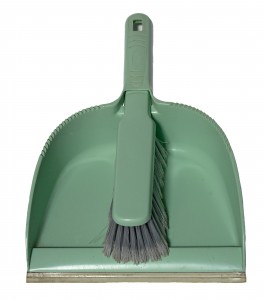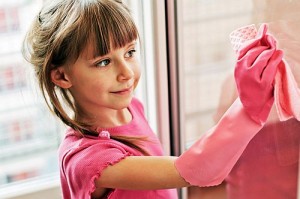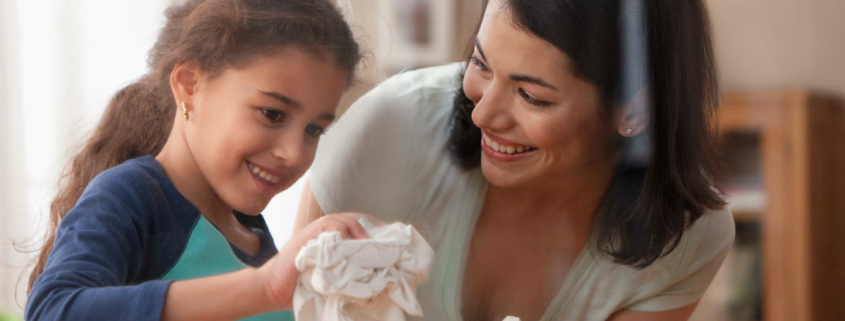Can Young Children Be Responsible?
There is a lot of work to be done in the home and classroom. Sometimes parents and teachers feel conflicted about asking young children to participate in housekeeping activities. Many worry that adding additional work to an already busy young child will have negative consequences.
 Experts have found that today’s parents and teachers are feeling tremendous pressure to enrich their children’s lives with academics, music lessons, sports, language classes, and other activities. Although these activates many be beneficial for young children, it often leaves little time for family time or creative play.
Experts have found that today’s parents and teachers are feeling tremendous pressure to enrich their children’s lives with academics, music lessons, sports, language classes, and other activities. Although these activates many be beneficial for young children, it often leaves little time for family time or creative play.
Miriam Arond, director of the Good Housekeeping Research Institute, has stated that children need to help with chores to gain feelings of competence in life skills that will be beneficial now and in the future. I have always believed that this involvement, with the operation of the classroom and home, help children feel that they are a contributing member. It is often said, “We’re all in this together – we help each other.”
Arond further explains that, “This participation counter’s the sense of entitlement.” It gives children recognition that they can do things that support the classroom or family. It helps children recognize their role, feel secure, and strengthens their confidence.
It is important to begin these chores early, and not wait until the preteen years when it may be more difficult to begin. Toddlers can be responsible for returning their toys to a storage area, sorting laundry by color, or preparing simple snacks. Preschoolers can move to more complex tasks, such as cleaning tables, feeding a pet, or making their bed. As they gain confidence, they can help in meal preparation, laundry, and dish washing.
 Involving children early on establishes a regular routine, and these chores become a part of their lives. For children who may be resentful, show them how to accomplish the task and what the final product looks like.
Involving children early on establishes a regular routine, and these chores become a part of their lives. For children who may be resentful, show them how to accomplish the task and what the final product looks like.
Remember, it is not important to clean or do a chore perfectly. Perfection is not the aim; the goal is to become a responsible person. It is a learning process. Support them with appropriate materials, such as large sponges, or wiping cloths. Praise and recognize their completed work.
There is no doubt that it is easier to do the work yourself, but it is important for the child to learn how to do the task to promote responsibility. Take the time to involve them, be consistent in your expectations, and observe the learning that is taking place. Developing responsible children is good for them and their world!
I would love to hear about some of the tasks that you are doing with your young children. Send me a story or an example that we can share with other teachers and parents!



